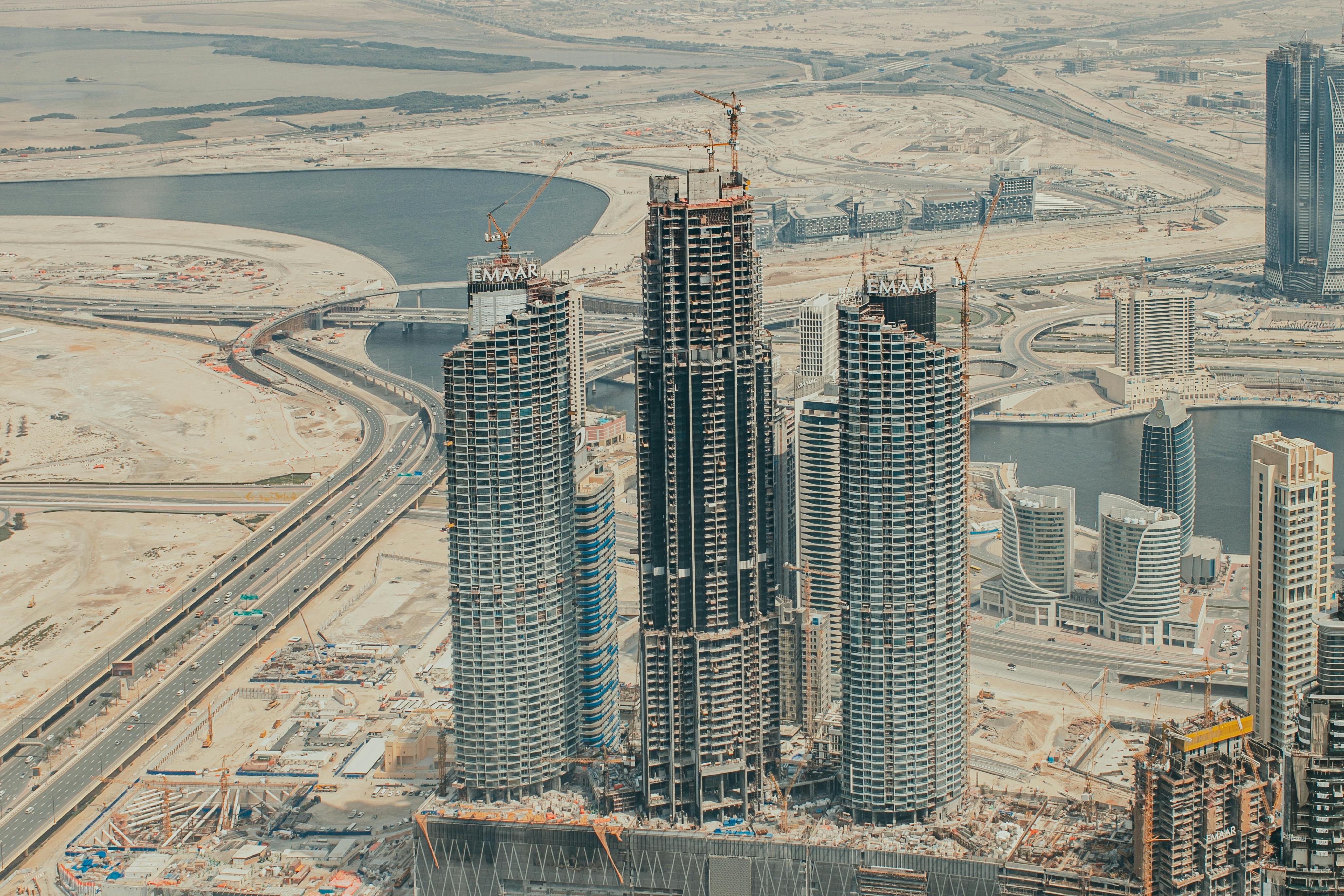Building the Future: How Modern Construction Services Are Shaping the World
Modern construction services go far beyond brick and mortar. From advanced project management tools to sustainable building practices, today's construction industry is evolving rapidly to meet growing global demands. Whether it's residential, commercial, or infrastructure projects, innovative construction solutions are reshaping skylines and transforming communities. This article explores the key trends, technologies, and techniques that define modern construction services and highlights how they drive quality, efficiency, and long-term value for clients.

What Are Innovative Construction Solutions for Modern-Day Challenges?
Today’s construction industry faces unprecedented challenges, from urbanization pressures to climate change concerns. Innovative construction solutions are emerging as the answer to these complex problems. Modular construction techniques are revolutionizing how buildings are created, allowing for faster assembly times and reduced waste. Prefabricated components manufactured in controlled environments ensure higher quality while minimizing on-site disruption.
Smart building technologies are another cornerstone of modern construction solutions. These systems integrate Internet of Things (IoT) sensors, automated climate control, and energy-efficient lighting to create structures that adapt to occupant needs. Canadian cities like Toronto and Vancouver are increasingly adopting these technologies in both residential and commercial projects, setting new standards for urban development.
3D printing technology is also transforming construction possibilities. While still in early stages, this technology allows for precise concrete placement and complex architectural designs that were previously impossible or prohibitively expensive. These innovations help construction companies tackle modern challenges while delivering superior results.
How Does Sustainability and Efficiency Drive Today’s Construction Projects?
Environmental responsibility has become a defining characteristic of modern construction services. Sustainability and efficiency in today’s construction projects are no longer optional features but essential requirements. Green building certifications like LEED (Leadership in Energy and Environmental Design) are becoming standard benchmarks for construction excellence across Canada.
Energy-efficient building materials are revolutionizing construction practices. Cross-laminated timber (CLT) offers a sustainable alternative to traditional steel and concrete, providing excellent structural integrity while reducing carbon footprint. Solar panel integration and geothermal heating systems are becoming standard features in new construction projects.
Water conservation technologies, including rainwater harvesting systems and greywater recycling, are being integrated into modern buildings. These systems not only reduce environmental impact but also provide long-term cost savings for building owners. Construction companies are increasingly specializing in these sustainable solutions to meet growing client demand and regulatory requirements.
How Is Technology Revolutionizing Construction Services?
Technology is fundamentally transforming how construction services operate. Digital project management platforms enable real-time collaboration between architects, engineers, and contractors, reducing miscommunication and project delays. Building Information Modeling (BIM) software creates detailed 3D models that help identify potential issues before construction begins.
Drone technology is revolutionizing site surveying and progress monitoring. These aerial systems provide accurate measurements and photographic documentation, improving project oversight and safety compliance. Augmented reality (AR) applications allow construction teams to visualize completed projects on-site, ensuring accuracy and reducing errors.
Artificial intelligence and machine learning are optimizing construction scheduling and resource allocation. These technologies analyze historical project data to predict potential delays and suggest solutions. Robotic systems are beginning to handle repetitive tasks like bricklaying and concrete pouring, improving consistency and worker safety.
From Planning to Completion: Delivering Construction Excellence
Modern construction services emphasize comprehensive project management from planning to completion. This holistic approach ensures seamless coordination between all project phases, resulting in higher quality outcomes and client satisfaction. Professional construction teams now utilize sophisticated planning software that integrates timelines, budgets, and resource requirements.
Quality control systems have evolved to include continuous monitoring throughout the construction process. Regular inspections and testing ensure that materials and workmanship meet specified standards. Digital documentation systems maintain detailed records of all project activities, providing transparency and accountability.
Risk management has become increasingly sophisticated, with construction companies employing advanced analytics to identify potential problems early. Weather monitoring systems, supply chain tracking, and safety protocols are all integrated into comprehensive project management approaches that minimize disruptions and ensure successful completion.
What Are Tailored Construction Services That Build More Than Structures?
Modern construction services recognize that every project requires customized solutions. Tailored construction services that build more than just structures focus on creating spaces that enhance communities and improve quality of life. This approach considers local climate conditions, cultural preferences, and long-term durability requirements.
Specialized construction teams work closely with clients to understand their unique needs and vision. Whether developing affordable housing, commercial complexes, or public infrastructure, these services emphasize collaboration and customization. Advanced design software enables rapid prototyping and visualization, allowing clients to experience their projects before construction begins.
Community integration is becoming a key consideration in construction planning. Projects are designed to complement existing neighborhoods while providing modern amenities and accessibility features. This comprehensive approach ensures that new construction enhances rather than disrupts local communities.
Construction Service Providers and Cost Considerations
Major construction service providers across Canada offer varying specializations and pricing structures. Understanding these options helps clients make informed decisions about their projects.
| Provider Type | Services Offered | Typical Cost Range (CAD) |
|---|---|---|
| General Contractors | Full-service construction, project management | $150-$300 per sq ft |
| Specialty Contractors | Electrical, plumbing, HVAC installation | $50-$150 per sq ft |
| Green Building Specialists | Sustainable construction, LEED certification | $200-$400 per sq ft |
| Modular Construction Companies | Prefabricated building assembly | $100-$250 per sq ft |
Prices, rates, or cost estimates mentioned in this article are based on the latest available information but may change over time. Independent research is advised before making financial decisions.
The construction industry’s transformation reflects broader technological and environmental shifts shaping our world. Modern construction services combine traditional craftsmanship with cutting-edge technology to create buildings that are more sustainable, efficient, and responsive to human needs. As these trends continue evolving, construction services will play an increasingly vital role in addressing global challenges while building the infrastructure that supports thriving communities. The future of construction lies in this integration of innovation, sustainability, and human-centered design principles.




